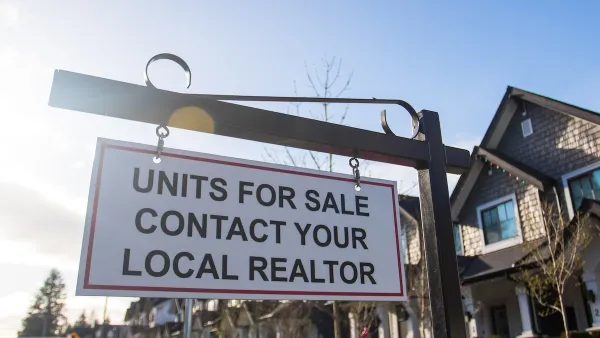A new study conducted by University of Colorado at Boulder, University of Pittsburgh and Duke University says that the scourge of gentrification is greatly exaggerated.
In their study of more than 15,000 neighborhoods across the U.S. in 1990 and 2000, researchers found that low-income, non-white households did not disproportionately leave gentrifying areas.
"In fact, researchers found that at least one group of residents, high school–educated blacks, were actually more likely to remain in gentrifying neighborhoods than in similar neighborhoods that didn't gentrify - even increasing as a fraction of the neighborhood population, and seeing larger-than-expected gains in income.
Those findings may seem counterintuitive, given that the term "gentrification," particularly in cities like New York and San Francisco, has become synonymous with soaring rents, wealthier neighbors and the dislocation of low-income residents. But overall, the new study suggests, the popular notion of the yuppie invasion is exaggerated. "We're not saying there aren't communities where displacement isn't happening," says Randall Walsh, an associate professor of economics at the University of Pittsburgh and one of the study's authors. "But in general, across all neighborhoods in the urbanized parts of the U.S., it looks like gentrification is a pretty good thing."
The researchers found, for example, that income gains in gentrifying neighborhoods - usually defined as low-income urban areas that undergo rises in income and housing prices - were more widely dispersed than one might expect."
FULL STORY: Gentrification: Not Ousting the Poor?

Maui's Vacation Rental Debate Turns Ugly
Verbal attacks, misinformation campaigns and fistfights plague a high-stakes debate to convert thousands of vacation rentals into long-term housing.

Planetizen Federal Action Tracker
A weekly monitor of how Trump’s orders and actions are impacting planners and planning in America.

San Francisco Suspends Traffic Calming Amidst Record Deaths
Citing “a challenging fiscal landscape,” the city will cease the program on the heels of 42 traffic deaths, including 24 pedestrians.

Bend, Oregon Zoning Reforms Prioritize Small-Scale Housing
The city altered its zoning code to allow multi-family housing and eliminated parking mandates citywide.

Amtrak Cutting Jobs, Funding to High-Speed Rail
The agency plans to cut 10 percent of its workforce and has confirmed it will not fund new high-speed rail projects.

LA Denies Basic Services to Unhoused Residents
The city has repeatedly failed to respond to requests for trash pickup at encampment sites, and eliminated a program that provided mobile showers and toilets.
Urban Design for Planners 1: Software Tools
This six-course series explores essential urban design concepts using open source software and equips planners with the tools they need to participate fully in the urban design process.
Planning for Universal Design
Learn the tools for implementing Universal Design in planning regulations.
planning NEXT
Appalachian Highlands Housing Partners
Mpact (founded as Rail~Volution)
City of Camden Redevelopment Agency
City of Astoria
City of Portland
City of Laramie





























